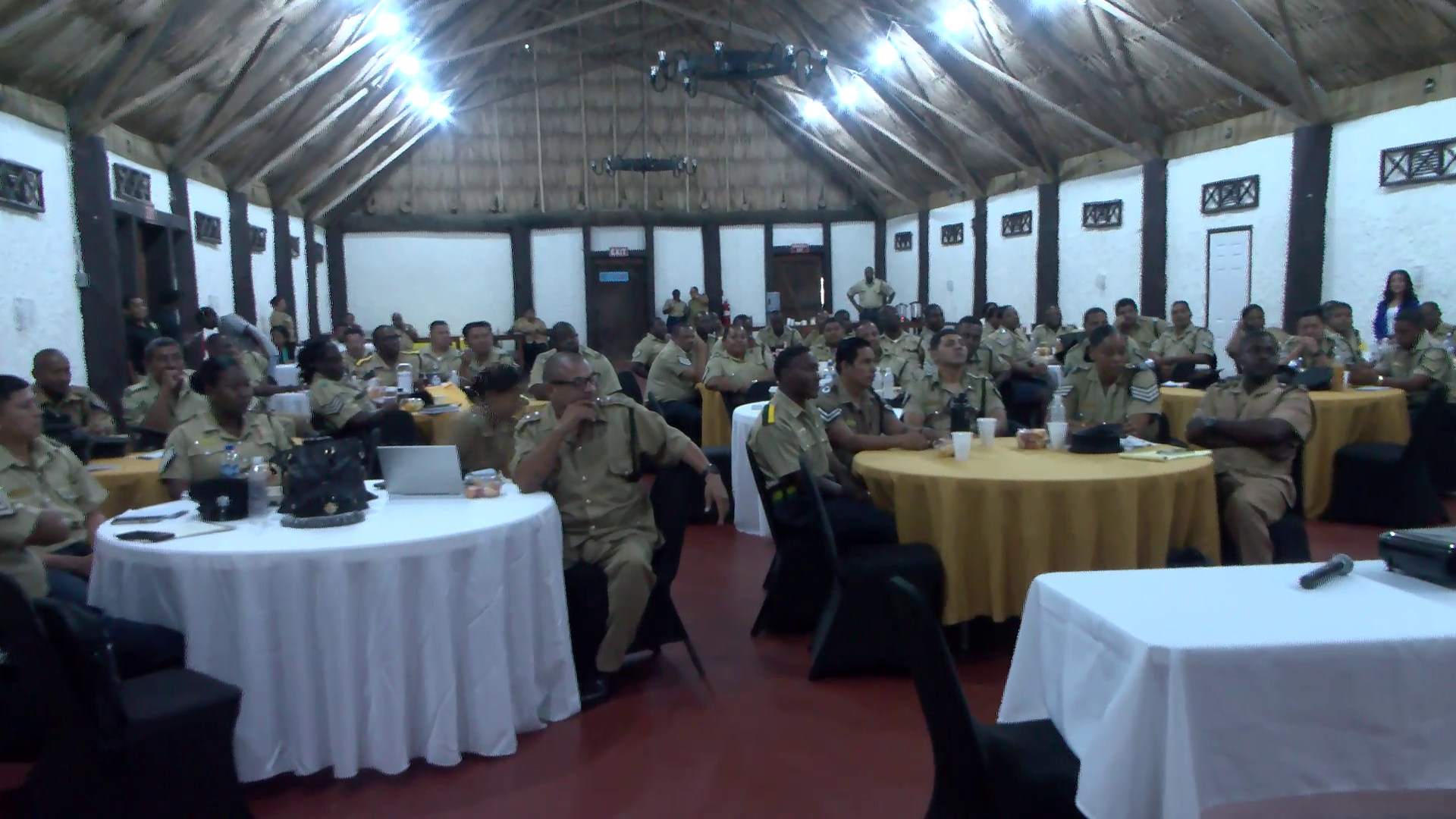Police officers across the country are now better equipped to respond to mental health emergencies, thanks to a specialized four-day workshop that just wrapped up in Belize City. Hosted by the Ministry of Health & Wellness and the Pan American Health Organization, the training focused on crisis response, giving officers the tools and understanding they need to handle situations involving individuals in the midst of a mental health crisis. We were at the closing ceremony to hear firsthand how this training is reshaping the way officers approach these sensitive encounters. News Five’s Britney Gordon has that story.
When someone is acting out or behaving aggressively, how the police respond can literally save lives. That’s why this week, officers from the Belize Police Department took part in a special workshop focused on mental health. The objective is to learn how to handle these tough situations with care and understanding. Assistant Superintendent Jane Usher, who leads the department’s training efforts, shared some of the helpful tips she picked up during the sessions.
A.S.P. Jane Usher, Director of Training, Belize Police Department
“They also gave us coping skills, coping techniques. But what was also very relevant to us was the self-care aspect. They taught us how to deal with our own mental health, how to de-stress and then also how to deliver this so that this training can be cascaded to the larger department. So it was a very total package that they put together for us.”
The training emphasized the use of de-escalation tactics over lethal force to preserve lives and avoid unnecessary injuries. Commander of the National Policing Unit, ACP Howell Gillett, believes this training is long overdue.
A.C.P Howell Gillett, Commander, National Community Policing Unit
“Too often, as we’ve seen in the past, we are troubled by the way we treat our people who are with mental illnesses. And sometimes in the past it has been even to the loss of life. And we don’t want that. So what we learn here this week, among other things we learn about de-escalation. Our officers respond to these scenes, how we protect ourselves and protect others, but importantly, how we treat victims with mental illnesses.”
National In-Service Training Coordinator Kenroy Elijio says the key takeaway is knowing how to recognize a mental health crisis in real time — because identifying the signs early can make all the difference in how a situation unfolds.
Insp. Kenroy Elijio, National In-Service Training Coordinator
“I learned, and it was emphasized and reemphasized that there is such a thing as mental illness. It’s a real issue. It exists and for most people, what would be considered as being mentally healthy is a state of well-being. Mentally. However, there is a spectrum that we looked at, which drifts all the way from being mentally healthy, and then it shows what happens when stress is added, which then moves up to distress. And then it ends up being a mental illness. One of the other things that I took away is that most mental illnesses can be treated and people can be on their way, but the key thing is to try to address it from its early stage and definitely get to the root of the problem.”
Another key component of the workshop was the importance of self-care. Officers were informed that suicide rates within law enforcement tend to spike higher than the general population, opening officers’ eyes to the stress factors that may be impacting their mental well-being.
Sgt. Deshawn Cabral, Instructor, Belize Police Training Academy
“ What really resonates with me was the topic under stress that had to do with a stress bucket. The stress bucket was just a visual that showed us different stressors that comes into the bucket that is filled. And the coping mechanisms were holes that were placed at the bottom of the bucket. So for example, if you have financial struggles, if you have family issues, if you have problems with management at work, those would be considered the stressors. However, the holes to the bottom were the coping mechanism, what you do to release those stressors. Those were sometimes for us police officers or us to take leave. Maybe to go on a vacation, to spend quality time with our families to do anything that will allow us to relax ourselves so that we can get back on that normal contingency before we move on.”
Officers were taught to handle instances of mental health crises by taking the time to regulate their own stress levels and properly assess the situation before acting. This training is a crucial step towards ensuring that remediable situations do not end in trauma nor tragedy. Britney Gordon for News Five.
